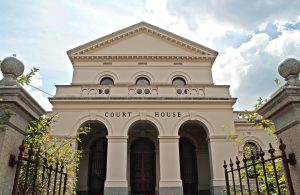Religious Rulings and Nonreligious Judges: The Importance of Legal Education
 Andrea Pin is Associate Professor of Comparative Public Law, University of Padua, and Senior Fellow at the Center for the Study of Law & Religion Emory University
Andrea Pin is Associate Professor of Comparative Public Law, University of Padua, and Senior Fellow at the Center for the Study of Law & Religion Emory University
“The rule that you are to love your neighbour becomes in law, you must not injure your neighbour; and the lawyer’s question, Who is my neighbour? receives a restricted reply. You must take reasonable care to avoid acts or omissions which you can reasonably foresee would be likely to injure your neighbour. Who, then, in law, is my neighbour? The answer seems to be–persons who are so closely and directly affected by my act that I ought reasonably to have them in contemplation as being so affected when I am directing my mind to the acts or omissions which are called in question.”
This is Lord Atkins’s starting point in one of the most famous and important rulings of the House of Lords of the 20th century. Donoghoue v. Stevenson (1932) was a landmark judgment that set the limits of liability for negligence in a highly-industrialized society. Lord Atkins found it obvious to seek guidance on the issue of liability in Jesus’s oft-repeated statement that one should love her neighbor as herself. The idea of loving your neighbor was not just a moral compass—it was also a legal compass. The only contentious part was “who” had to be considered as a “neighbour.”

 In this series, we provide different perspectives on religion and judging. Five contributors, academics and a U.S. federal judge explore religious diversity and the judiciary, interplays between religious convictions and judicial ethics, and the role of religion and religious beliefs in professional and personal biographies of judges.
In this series, we provide different perspectives on religion and judging. Five contributors, academics and a U.S. federal judge explore religious diversity and the judiciary, interplays between religious convictions and judicial ethics, and the role of religion and religious beliefs in professional and personal biographies of judges.